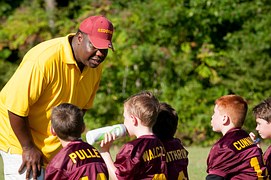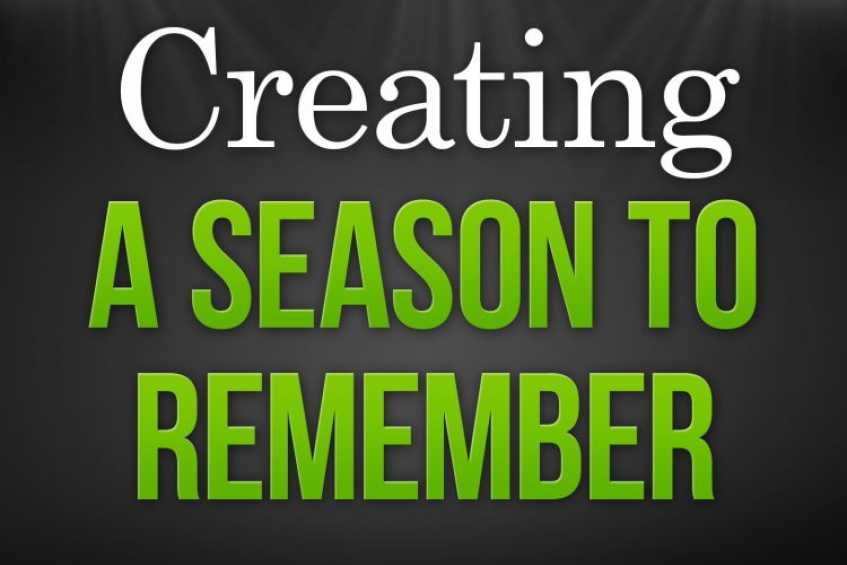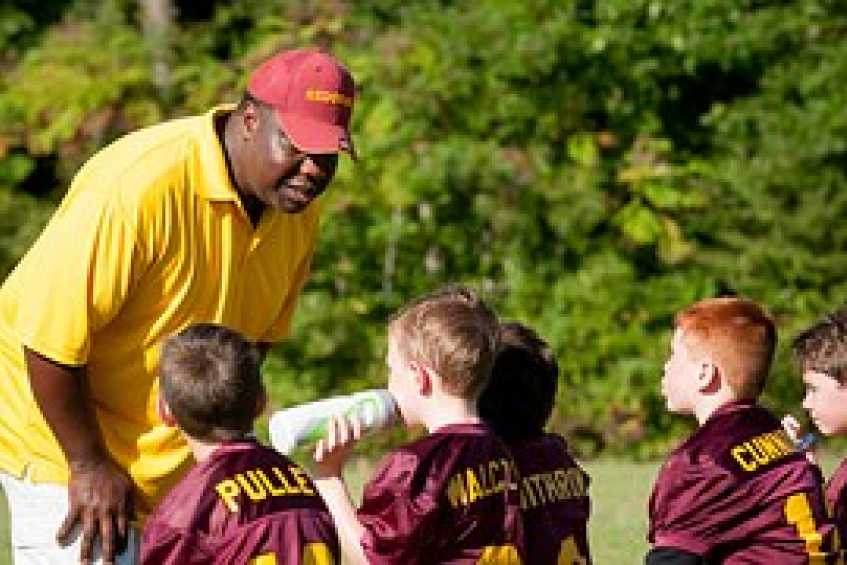Why the Need for New Coaching Perspective Strategies
Anyone who keeps up with youth sports realizes there are growing problems. The deteriorating condition of youth sports makes it time for new coaching perspective strategies. This approach must deal with the most common issues. Some subjects have been around in youth sports, but travel sports have brought many new concerns to the fore. Coaches can prevent these headaches from becoming migraines with these coaching perspective strategies.
It may be unfair that everything falls into the coaches' laps. Until mandatory parent education classes arrives, coaches must control adults and game situations, too. Coaches are the only people with the power to turn things in a more positive direction from our current sinking situation.
It would help if coaching training was a part of every coach's pre-season routine. With online capabilities these days, training classes are easy to disperse. Coaches should have to take and pass these courses before beginning the season. The classes should deal with ways of working with athletes and practice plans, along with methods to communicate with parents.
It would be great if all youth coaches had to pass coaching certification classes. Until that day, guidelines to help coaches have a stable coaching perspective is necessary. They make a beneficial difference to players and parents alike. As mentioned the changing times dictate a new youth sports coaching perspective.
Coaching perspective strategies for solving the major youth sports issues
 Time for a New Approach
Time for a New Approach
- Equal playing time. Fair is fair for kids, and for all levels of play coaches have to figure out ways of giving players the same amount over the course of the season. No issue upsets players and parent more than a lack of playing time, and rightfully so. Youth sports are not professional or even college sports, so equal time is mandatory for youth below the high school level. Keeping accurate statistics to know where players stand on the equal playing time list is a first step. Adding a few extra games may help equal things out, as well as being creative with substitution habits. The one thing that allows deviation from the same amount of time philosophy is when players miss practices and games for non-health issues. A discussion and agreement about that must occur in the pre-season. As mentioned, fair is fair and more committed athletes deserve more.
- Choosing positions in a fair way. Another big concern of players and parents is who plays which positions. Coaches should have a skills day at the beginning of the season and invite interested parents. The coaches grade out players at various positions of the athlete's choice. From these evaluations, coaches discuss what they saw with the parents present. Coaches should also explain what players can do to improve at that time. They can even set up a depth chart, so everyone knows where they stand. From time to time, coaches should give any unhappy players an opportunity to show their skills again at other positions in practice.
- Free play should be a part of practices. Coaches should have occasional practices, or parts of practices when players just play without coaching. Allowing players to figure out things like positioning and officiating on their own is a good learning experience.
- Equal attention for all players. At the highest levels of sports, players often earn the amount of coaching attention they get by their level of effort and interest. But, at the youth levels, coaches must give equal attention to players. Regardless of their ability, desire, and interest, players deserve the coach's expertise. Many come to love the sport in time, when they see the coach cares about them and they get more experience.
- Having a positive coaching style. Coaches must choose a style that promotes fun, player development and effort. A negative way attacks player character and stresses winning above all else. Winning is not high on the list of why kids play sports in the first place and nobody likes their integrity attacked. Belittling players and putting extra pressure on them to win is counterproductive in the end.
Coaching perspective strategies for working with parents
- Discuss money at the beginning of the season. It is mandatory nowadays that parents know what they get for the amount of money paid. Coaches should detail where every dollar goes, as well as explaining the checks and balances for who handles it.
- Explain the above 1 - 5 points made to the team. Coaches should inform parents of the playing time goals, how players earn positions and of their positive coaching philosophy.
- Discuss game day rules for parents. Coaches are in charge of how their fans behave at games. Thus, they must review with adults what acceptable game day conduct is. Chief among those is staying away from players and no talk towards the officials or opposite team, with light cheering, only. Coaches must explain the consequences of breaking those rules is the benching of their son or daughter for the rest of the game. Parents who cannot abide by this system should look for another team for their child.
- Have a communication system for concerns. Coaches must insist that parents with a problem about any coaching moves come to the coaches first. Speaking to other parents and their kids first creates bigger, unnecessary problems. But, coaches should also ask that parents wait 24 hours before contacting coaches about their issue. The heat of the moment airing of concerns usually leads to unpleasant things said. Also, parents should set up a private meeting with the coach to avoid email back and forth. Written things can come back to haunt people in the future. Finally, more than one coach should be present at meetings when parents seem more upset than normal.
- Teach parents what the players are working on at practice. It is best to keep everyone on the same page when it comes to instruction. When kids hear various ways to do things from some sources, they lose hope and interest. Coaches should inform interested parents of what they are coaching, the correct way to do them, as well as drills for kids to do at home.
Coaching Perspective Plan for everyone
- We will do our best. Coaches should tell parents and players from the start that they do not know it all. But, they will always do what they feel is best for the team. Finally, it is important for people to know that the coaching staff will continue to look to improve their coaching knowledge and methods as the season progresses. People have more tolerance when coaches do not act like know-it-alls.
Practicing many of these coaching perspective strategies eliminates many problems that occur frequently in today's youth sports world. #youthsports #youthcoaching
Please share any and all articles if so inclined.
Jack Perconte has dedicated his post major league baseball career to helping youth. He has taught baseball and softball for the past 27 years and writes of his experiences with over a thousand articles on coaching baseball and youth. Combining his playing, coaching and patenting experiences he continues to help create better baseball and sporting experiences for both athletes and their parents with his writings. Jack is the author of "The Making of a Hitter" and "Raising an Athlete,†with his third book “Creating a Season to Remember†in the works. Jack is a featured writer for Baseball the Magazine. Plug in Jack Perconte at YouTube and find over 80 fun and innovative baseball instructional videos or watch them here.




chandler allen says:
"Hi my name is chandler, i’ve enjoyed..."
On Wanting to tryout for summer ball. as an 18 year old
david graham says:
"With no current MLB team in Canada,..."
On With no current MLB team in
Charles Chavez says:
"To All Coaches: Do you have13U or..."
On Looking for Games